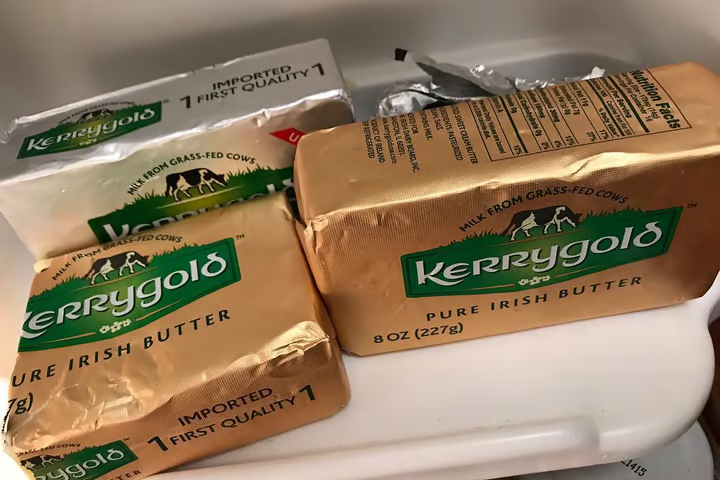Butter is a staple in many kitchens, whether it’s spread on toast, melted into a sauce, or used to bake your favorite cookies. But how often do you find yourself wondering, “Does butter expire?” The answer is yes, butter does expire. However, with proper storage, you can extend its shelf life and enjoy fresh butter for longer. In this guide, we’ll explore how to store butter correctly, how to tell if it’s gone bad, and tips for making the most out of this beloved dairy product.
Understanding Butter’s Shelf Life
Expiration Dates: What Do They Really Mean?

The expiration or “best by” dates on butter packages are there to guide you on when the butter is at its peak quality. Generally, unopened butter can last about a month beyond the printed date if stored in the refrigerator. Once opened, butter should ideally be used within two weeks past the printed date to ensure it remains fresh and flavorful.
Can You Use Butter After the Expiration Date?
Yes, you can often use butter after the expiration date if it has been stored properly. However, its quality may start to decline. If it’s been a few weeks past the date, check for any signs of spoilage before using it.
How to Store Butter for Maximum Freshness
Refrigerator Storage: The Basics
To keep your butter fresh, store it in the refrigerator at or below 40 degrees Fahrenheit. Butter stored on an inner shelf rather than the door will be less exposed to temperature fluctuations, which helps maintain its texture and flavor.
Should You Store Butter at Room Temperature?
While some people prefer to keep butter at room temperature for easy spreading, this practice can cause the oils in the butter to go rancid more quickly. If you do choose to store butter on the counter, use a butter dish with a lid, and consume it within a week to avoid spoilage.
Freezing Butter: Long-Term Storage Solution

For long-term storage, freezing butter is a great option. When properly wrapped in its original packaging or in an airtight container, butter can last in the freezer for 6 to 9 months. Freezing helps preserve the butter’s quality, and it can be thawed in the refrigerator when you’re ready to use it.
How to Tell If Butter Has Gone Bad
Signs of Spoiled Butter
Butter that has gone bad is usually easy to spot. Here are some key indicators:
- Texture Changes: Spoiled butter may become either too hard or too soft.
- Discoloration: Fresh butter is typically pale yellow. If you notice dark spots or a dull, grayish hue, it’s time to toss it.
- Mold Growth: Any sign of mold means the butter should be discarded immediately.
- Off Smell: Good butter has a clean, creamy aroma. If it smells sour or rancid, it’s no longer safe to eat.
- Sour Taste: If the butter tastes sour or off, it’s a clear sign that it has spoiled.
What Happens If You Eat Spoiled Butter?
Eating a small amount of spoiled butter is unlikely to cause serious harm, but it can lead to an unpleasant taste and digestive discomfort. If you suspect your butter has gone bad, it’s best to err on the side of caution and discard it.
Practical Tips for Keeping Butter Fresh
Seal It Tight After Each Use
To keep butter fresh, always reseal it after each use. This prevents it from absorbing other odors in the fridge and slows down the oxidation process that can lead to rancidity.
Use a Butter Dish with a Lid

If you like to keep butter at room temperature, invest in a butter dish with a lid. This will protect the butter from light, air, and contaminants, helping it stay fresh for longer.
Consider Portioning Butter for Freezing
If you buy butter in bulk, consider portioning it into smaller pieces before freezing. This way, you can defrost only what you need, keeping the rest in optimal condition.
Conclusion
Butter does expire, but with proper storage, you can extend its shelf life significantly. Whether you keep it in the fridge, on the counter, or in the freezer, understanding the best practices for storing butter will ensure it stays fresh and delicious. Remember to always check for signs of spoilage, and when in doubt, throw it out. With these tips, you’ll never have to worry about wasted butter again.


